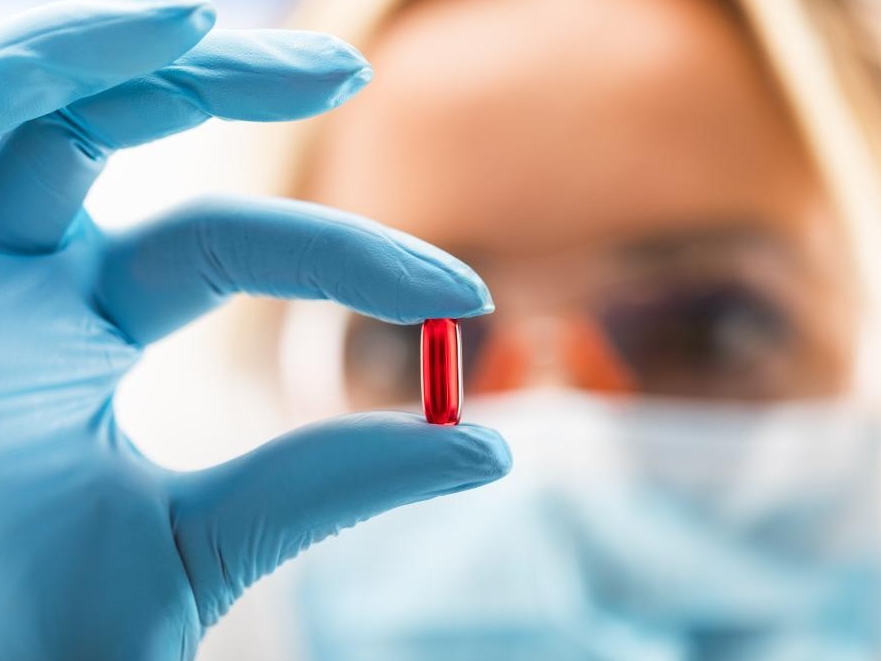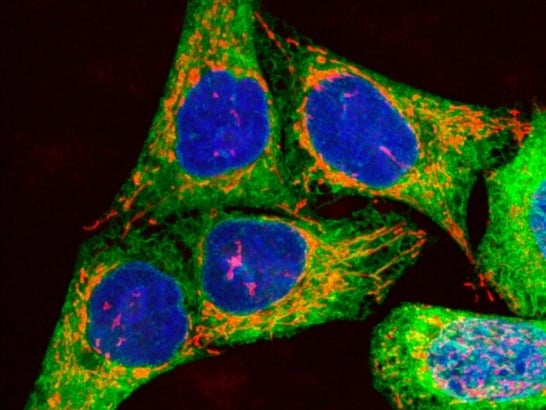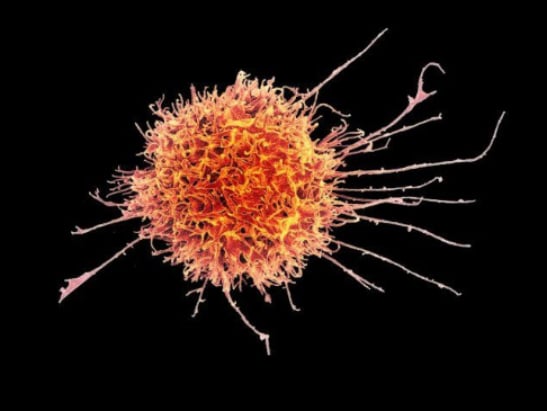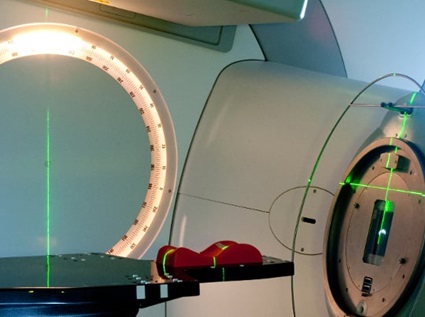Targeted Therapy Group
Professor Harrington’s Targeted Therapy Group aims to develop new cancer therapies that selectively target cancer cells. This is accomplished by assessing combinations of viral, drug and immune therapies with radiation as a means of boosting both direct cytotoxic and indirect immune-related effects against cancers.
Our group studies a broad range of oncolytic virotherapy agents that are able to kill cancerous cells.
Quick links:
- Specific research projects
- Selected publications
- External funding sources
Specific research projects
1. Synthetic lethal interactions between oncolytic virotherapies and standard/experimental anti-cancer drugs (Joan Kyula-Currie, Vic Roulstone).
2. Use of oncolytic virotherapy in combination with isolated limb perfusion to enhance locoregional and systemic anti-tumour efficacy of melphalan and tumour necrosis factor-alpha (Andrew Hayes, Henry Smith, Emma Davies).
3. Developing radioprotective gene therapy strategies using a superficial inferior epigastric artery free flap model in rats (Aadil Khan, James Paget, Joseph Ward).
4. Evaluation of small molecule inhibitors, immune checkpoint inhibitors and oncolytic virotherapy in immunocompetent murine thyroid cancer models (Malin Pedersen, Eva Crespo-Rodriguez).
5. Evaluation of modulators of endoplasmic reticulum stress in combination with oncolytic reovirus (Martin McLaughlin).
6. Combinations of ATR inhibition and radiation and their effects on immunogenic cell death in mouse models of head and neck cancer (Emmanuel Patin, Martin McLaughlin, Magnus Dillon).
7. Circulating tumour DNA as a means of monitoring therapeutic outcomes in patients with HPV positive cancers (Shreerang Bhide, Jen Lee).
Selected publications
1. Dillon MT, Grove L, Newbold KL, Shaw H, Brown NF, Mendell J, Chen S, Beckman RA, Jennings A, Ricamara M, Greenberg J, Forster M, Harrington KJ. Patritumab with Cetuximab Plus Platinum-Containing Therapy in Recurrent or Metastatic Squamous Cell Carcinoma of the Head and Neck: An Open-Label, Phase-Ib Study. Clin Cancer Res. 2018 (in press).
2. Marabelle A, Andtbacka R, Harrington K, Melero I, Leidner R, de Baere T, Robert C, Ascierto PA, Baurain JF, Imperiale M, Rahimian S, Tersago D, Klumper E, Hendriks M, Kumar R, Stern M, Öhrling K, Massacesi C, Tchakov I, Tse A, Douillard JY, Tabernero J, Haanen J, Brody J. Starting the Fight in the Tumor: Expert Recommendations for the Development of Human Intratumoral Immunotherapy (HIT-IT). Ann Oncol. 2018 (in press).
3. Hafsi H, Dillon MT, Barker HE, Kyula JN, Schick U, Paget JT, Smith HG, Pedersen M, McLaughlin M, Harrington KJ. Combined ATR and DNA-PK Inhibition Radiosensitizes Tumor Cells Independently of Their p53 Status. Front Oncol. 2018 Jul 13;8:245.
4. Khan AA, Paget JT, McLaughlin M, Kyula JN, Wilkinson MJ, Pencavel T, Mansfield D, Roulstone V, Seth R, Halle M, Somaiah N, Boult JKR, Robinson SP, Pandha HS, Vile RG, Melcher AA, Harris PA, Harrington KJ. Genetically modified lentiviruses that preserve microvascular function protect against late radiation damage in normal tissues. Sci Transl Med. 2018; 10(425).
5. McLaughlin M, Barker HE, Khan AA, Pedersen M, Dillon M, Mansfield DC, Patel R, Kyula JN, Bhide SA, Newbold KL, Nutting CM, Harrington KJ. HSP90 inhibition sensitizes head and neck cancer to platin-based chemoradiotherapy by modulation of the DNA damage response resulting in chromosomal fragmentation. BMC Cancer. 2017; 17: 86.
6. Patel R, Barker HE, Kyula J, McLaughlin M, Dillon MT, Schick U, Hafsi H, Thompson A, Khoo V, Harrington K, Zaidi S. An orally bioavailable Chk1 inhibitor, CCT244747, sensitizes bladder and head and neck cancer cell lines to radiation. Radiother Oncol. 2017; 122: 470-475.
7. Dillon MT, Barker HE, Pedersen M, Hafsi H, Bhide SA, Newbold KL, Nutting CM, McLaughlin M, Harrington KJ. Radiosensitization by the ATR Inhibitor AZD6738 through Generation of Acentric Micronuclei. Mol Cancer Ther. 2017; 16: 25-34.
8. Ferris RL, Blumenschein G Jr, Fayette J, Guigay J, Colevas AD, Licitra L, Harrington K, Kasper S, Vokes EE, Even C, Worden F, Saba NF, Iglesias Docampo LC, Haddad R, Rordorf T, Kiyota N, Tahara M, Monga M, Lynch M, Geese WJ, Kopit J, Shaw JW, Gillison ML. Nivolumab for Recurrent Squamous-Cell Carcinoma of the Head and Neck. N Engl J Med. 2016; 375: 1856-1867.
9. Barker HE, Patel R, McLaughlin M, Schick U, Zaidi S, Nutting CM, Newbold KL, Bhide S, Harrington KJ. CHK1 Inhibition Radiosensitizes Head and Neck Cancers to Paclitaxel-Based Chemoradiotherapy. Mol Cancer Ther. 2016; 15: 2042-54.
10. Andtbacka RH, Agarwala SS, Ollila DW, Hallmeyer S, Milhem M, Amatruda T, Nemunaitis JJ, Harrington KJ, Chen L, Shilkrut M, Ross M, Kaufman HL. Cutaneous head and neck melanoma in OPTiM, a randomized phase 3 trial of talimogene laherparepvec versus granulocyte-macrophage colony-stimulating factor for the treatment of unresected stage IIIB/IIIC/IV melanoma. Head Neck. 2016; 38: 1752-1758.
11. McEntee G, Kyula JN, Mansfield D, Smith H, Wilkinson M, Gregory C, Roulstone V, Coffey M, Harrington KJ. Enhanced cytotoxicity of reovirus and radiotherapy in melanoma cells is mediated through increased viral replication and mitochondrial apoptotic signalling. Oncotarget 2016; 7: 48517-48532.
12. Wilkinson MJ, Smith HG, Pencavel TD, Mansfield DC, Kyula-Currie J, Khan AA, McEntee G, Roulstone V, Hayes AJ, Harrington KJ. Isolated limb perfusion with biochemotherapy and oncolytic virotherapy combines with radiotherapy and surgery to overcome treatment resistance in an animal model of extremity soft tissue sarcoma. Int J Cancer 2016; 139: 1414-22.
13. Mansfield DC, Kyula JN, Rosenfelder N, Chao-Chu J, Kramer-Marek G, Khan AA, Roulstone V, McLaughlin M, Melcher AA, Vile RG, Pandha HS, Khoo V, Harrington KJ. Oncolytic vaccinia virus as a vector for therapeutic sodium iodide symporter gene therapy in prostate cancer. Gene Ther. 2016; 23: 357-68.
14. Barker HE, Paget JT, Khan AA, Harrington KJ. The tumour microenvironment after radiotherapy: mechanisms of resistance and recurrence. Nat Rev Cancer. 2015; 15: 409-25.
15. Andtbacka RH, Kaufman HL, Collichio F, Amatruda T, Senzer N, Chesney J, Delman KA, Spitler LE, Puzanov I, Agarwala SS, Milhem M, Cranmer L, Curti B, Lewis K, Ross M, Guthrie T, Linette GP, Daniels GA, Harrington K, Middleton MR, Miller WH Jr, Zager JS, Ye Y, Yao B, Li A, Doleman S, VanderWalde A, Gansert J, Coffin RS. Talimogene Laherparepvec Improves Durable Response Rate in Patients With Advanced Melanoma. J Clin Oncol. 2015; 33: 2780-2788.
16. Seth R, Khan AA, Pencavel TD, Wilkinson MJ, Kyula JN, Simpson G, Pandha H, Melcher A, Vile R, Harris PA, Harrington KJ. Adenovirally delivered enzyme prodrug therapy with herpes simplex virus-thymidine kinase in composite tissue free flaps shows therapeutic efficacy in rat models of glioma. Plast Reconstr Surg. 2015; 135: 475-87.
17. Roulstone V, Pedersen M, Kyula J, Mansfield D, Khan AA, McEntee G, Wilkinson M, Karapanagiotou E, Coffey M, Marais R, Jebar A, Errington-Mais F, Melcher A, Vile R, Pandha H, McLaughlin M, Harrington KJ. BRAF- and MEK-Targeted Small Molecule Inhibitors Exert Enhanced Antimelanoma Effects in Combination With Oncolytic Reovirus Through ER Stress. Mol Ther. 2015; 23: 931-42.
18. Roulstone V, Khan K, Pandha HS, Rudman S, Coffey M, Gill GM, Melcher AA, Vile R, Harrington KJ, de Bono J, Spicer J. Phase I trial of cyclophosphamide as an immune modulator for optimizing oncolytic reovirus delivery to solid tumors. Clin Cancer Res. 2015; 21: 1305-12.
19. Pencavel TD, Wilkinson MJ, Mansfield DC, Khan AA, Seth R, Karapanagiotou EM, Roulstone V, Aguilar RJ, Chen NG, Szalay AA, Hayes AJ, Harrington KJ. Isolated limb perfusion with melphalan, tumour necrosis factor-alpha and oncolytic vaccinia virus improves tumour targeting and prolongs survival in a rat model of advanced extremity sarcoma. Int. J. Cancer 2015; 136: 965-976.
20. Dillon MT, Good JS, Harrington KJ. Selective targeting of the G2/M cell cycle checkpoint to improve the therapeutic index of radiotherapy. Clin Oncol (R Coll Radiol). 2014; 26: 257-265.
21. Kyula JN, Khan AA, Mansfield D, Karapanagiotou EM, McLaughlin M, Roulstone V, Zaidi S, Pencavel T, Touchefeu Y, Seth R, Chen NG, Yu YA, Zhang Q, Melcher AA, Vile RG, Pandha HS, Ajaz M, Szalay AA, Harrington KJ. Synergistic cytotoxicity of radiation and oncolytic Lister strain vaccinia in V600D/EBRAF mutant melanoma depends on JNK and TNF-α signaling. Oncogene 2014; 33: 1700-1712.
22. Touchefeu Y, Khan AA, Borst G, Zaidi SH, McLaughlin M, Roulstone V, Mansfield D, Kyula J, Pencavel T, Karapanagiotou EM, Clayton J, Federspiel MJ, Russell SJ, Garrett M, Collins I, Harrington KJ. Optimising measles virus-guided radiovirotherapy with external beam radiotherapy and specific checkpoint kinase 1 inhibition. Radiother. Oncol. 2013; 108: 24-31.
23. Mansfield D, Pencavel T, Kyula JN, Zaidi S, Roulstone V, Thway K, Karapanagiotou L, Khan AA, McLaughlin M, Touchefeu Y, Seth R, Melcher AA, Vile RG, Pandha HS, Harrington KJ. Oncolytic Vaccinia virus and radiotherapy in head and neck cancer. Oral Oncol. 2013; 49: 108-118
24. Borst GR, McLaughlin M, Kyula JN, Neijenhuis S, Khan A, Good J, Zaidi S, Powell NG, Meier P, Collins I, Garrett MD, Verheij M, Harrington KJ. Targeted radiosensitization by the Chk1 inhibitor SAR-020106. Int J Radiat Oncol Biol Phys. 2013; 85: 1110-1108.
25. Roulstone V, Twigger K, Zaidi S, Pencavel T, Kyula JN, White C, McLaughlin M, Seth R, Karapanagiotou EM, Mansfield D, Coffey M, Nuovo G, Vile RG, Pandha HS, Melcher AA, Harrington KJ. Synergistic cytotoxicity of oncolytic reovirus in combination with cisplatin-paclitaxel doublet chemotherapy. Gene Ther. 2013; 20: 521-528.
External funding sources
- Cancer Research UK
- Wellcome Trust
- Medical Research Council
- The Royal College of Surgeons England
- The Royal College of Surgeons Edinburgh and Ireland
- The Oracle Cancer Trust
- The Rosetrees Trust

Some of these so-called oncolytic viruses have naturally evolved to grow preferentially in cancer cells because of the cells’ specific genetic defects, while others have been genetically engineered to grow selectively in cancer cells.
This aspect of the group’s research is led by Dr Joan Kyula-Currie and Victoria Roulstone whose recent work has focused on harnessing the potential of oncolyitic viruses to trigger anti-tumour immune responses, alone or in combination with other therapeutic modalities.
Professor Harrington hopes new treatments using these viruses will improve patients’ cure rates and have fewer side-effects than current therapies. Professor Harrington’s group has completed a large number of translational clinical trials of oncolytic virotherapies and he was UK Principal Investigator on the pivotal phase III OPTiM trial that led to FDA approval of T-VEC.
The group’s work on targeted radiosensitisers involves detailed mechanistic studies of the effects of small molecules that can modulate cellular responses to DNA damage. In particular, drugs that target the G2/M phase of the cell cycle are seen as having great potential for enhancing anti-tumour immune responses.
This component of the group’s research is led by Dr Martin McLaughlin and Dr Emmanuel Patin. The group has expertise in researching inhibitors of HSP90, Chk1, ATR and DNA-PK and most of the recent work has focussed on characterising phenotypic and functional changes in immune cell infiltrates in response to combinations of targeted radiosensitisers and ionising radiation.
These studies have been translated into clinical trials, including the phase I PATRIOT study of the ATR inhibitor, AZD6738. Further research will expand our understanding of the effects of combining radiation, DNA damage response modifiers and immune checkpoint inhibition.
In recent years, the group has developed significant expertise in the field of thyroid cancer, under the leadership of Dr Malin Pedersen. This work covers a range of research projects evaluating the therapeutic potential of small molecule inhibitors (B-Rafi, Pan-Rafi), oncolytic virotherapies and immune checkpoint inhibition. These agents are under test as stand-alone therapies, but more commonly in the context of combinatorial regimens.
Professor Harrington’s group is also active in research projects that exploit surgical models to understand the potential benefits of virus therapies. The group’s work on isolated limp perfusion (ILP), in collaboration with Mr Andrew Hayes (Consultant Surgeon, RMH), has used a rat sarcoma model to demonstrate that intravascular delivery of vaccinia virus can augment the therapeutic gains from melphalan and TNF-alpha.
Furthermore, the group’s work has shown that a combination regimen of viral ILP, surgery, radiotherapy and immune checkpoint blockade can protect against systemic relapse of disease. These findings have been translated into a phase I clinical trial (TITAN) of ILP plus T-VEC (under the leadership of Andrew Hayes).
In addition, by using a novel rat model of free flap transfer, the group has evaluated the role of lentiviral gene delivery as a means of mitigating the damaging effects of radiotherapy in normal tissues (under the leadership of Mr Aadil Khan).
Gene therapy-mediated silencing of connective tissue growth factor (CTGF) and overexpression of mitochondrial superoxide dismutase (Mn-SOD) has been shown to reduce radiation-induced damage in a rat superficial inferior epigastric flap model. Further studies are evaluating the roles of immune cells in mediating radiation-induced fibrosis.
Much of Professor Harrington’s laboratory work is immediately translated into clinical trials at the Royal Marsden NHS Foundation Trust, most often in patients with head and neck cancers, and melanomas.
Professor Harrington says that the ICR’s unique partnership with the Royal Marsden allows him to conduct innovative laboratory research and apply it in the clinical setting, achieving “real patient benefit” in the shortest possible time frames.
Professor Kevin Harrington
Head of Division:
Targeted Therapy, Magnetic Resonance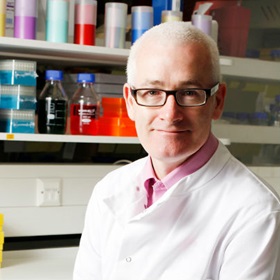
Professor Kevin Harrington is Head of the Division of Radiotherapy and Imaging and studies the use of biologically targeted agents, in combination with treatments such as radiotherapy and chemotherapy, to target cancer cells selectively. He is a specialist in head and neck cancer and in melanoma, and a Fellow of the Royal College of Physicians and the Royal College of Radiologists.
Researchers in this group
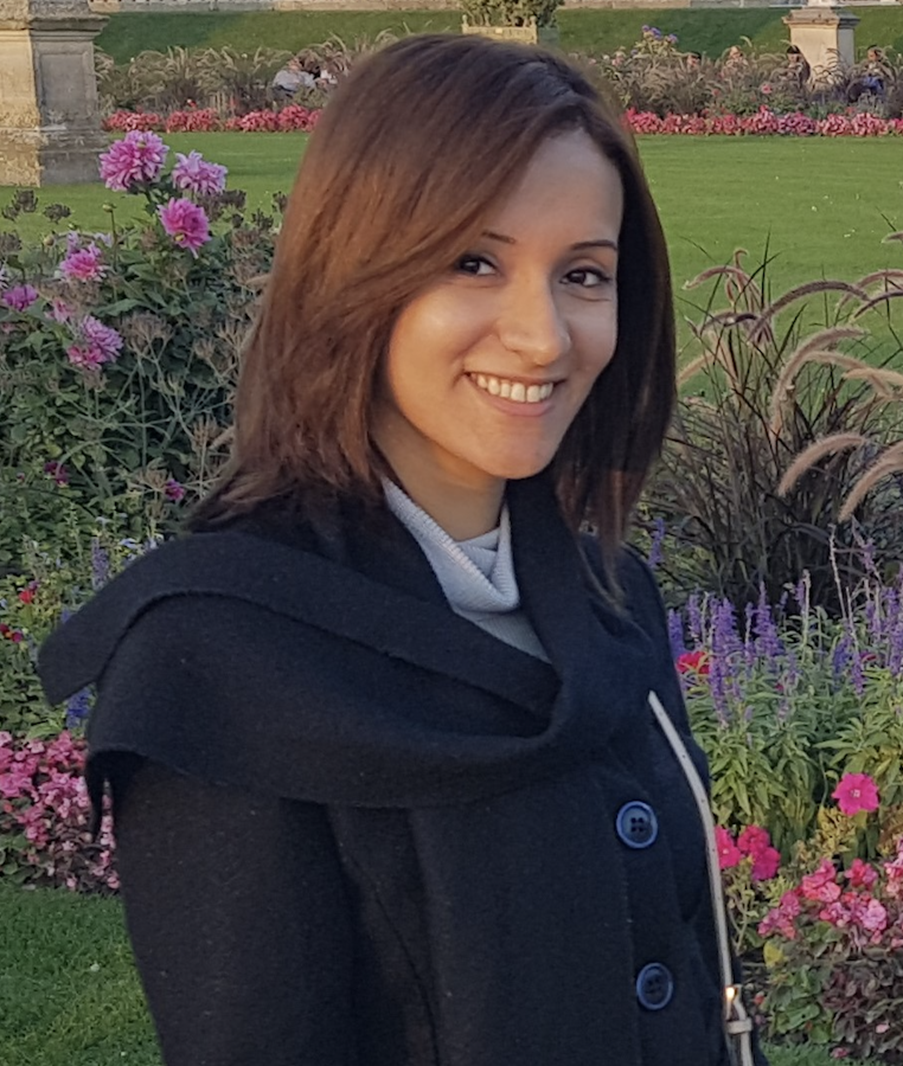 .
.
Mai is a Specialty Registrar in Clinical Oncology who joined Dr Ben O'Leary's group in 2023 as an NIHR Academic Clinical Fellow on the Integrated Academic Training Programme. She was subsequently awarded a prestigious CRUK Clinical Research Training Fellowship. She is working on novel liquid biopsy technologies in head and neck cancer.
 .
.
Email: [email protected]
Location: Sutton
Dilraj is a Bioinformatic Scientist at the Institute of Cancer Research, specializing in data analysis, biomarker development using various omics data, and applied machine learning to healthcare data. Her work focuses on developing data-driven solutions that enhance patient care and optimize clinical research workflows. She is currently working on developing a ctDNA methylation approach for head and neck cancer patients.
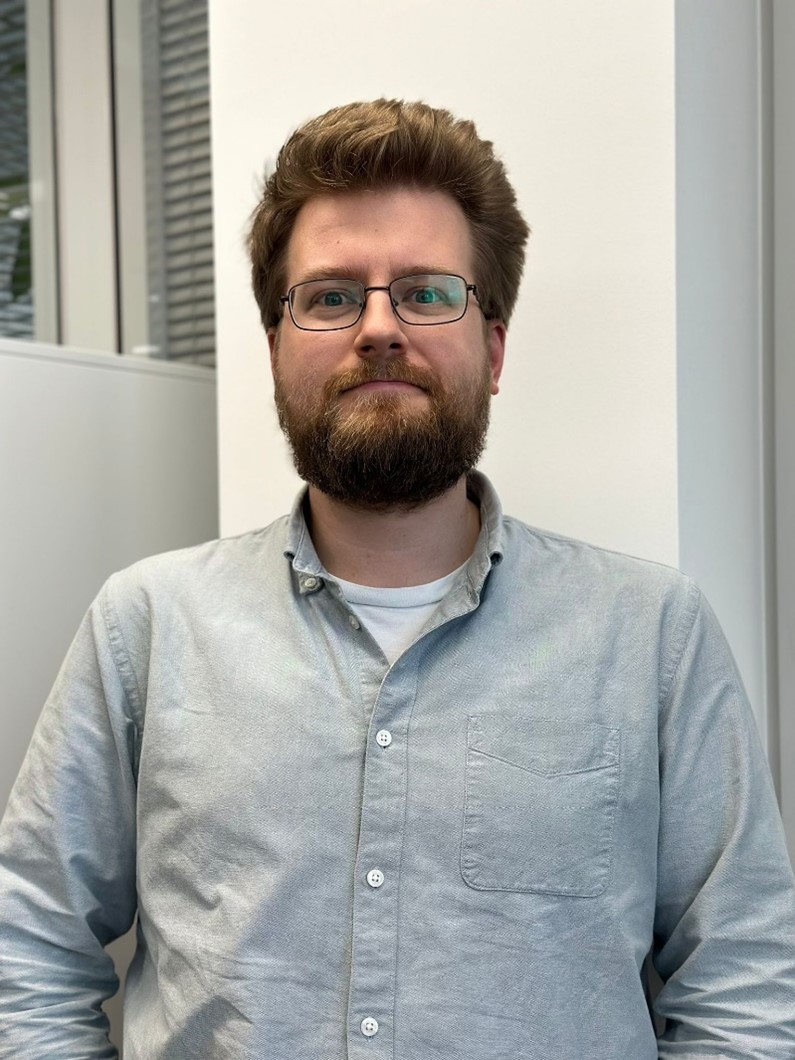 .
.
Anton is a senior bioinformatician who is part of the Centre for Immunotherapy of Cancer and RadNet group and is working with the team on the evolution of head and neck cancers using multi-omic approaches. He leads a collaborative project developing novel genomics workflows examining the role of the human papillomavirus, its copy number and structural integration, in driving head and neck cancer and the host immune response.
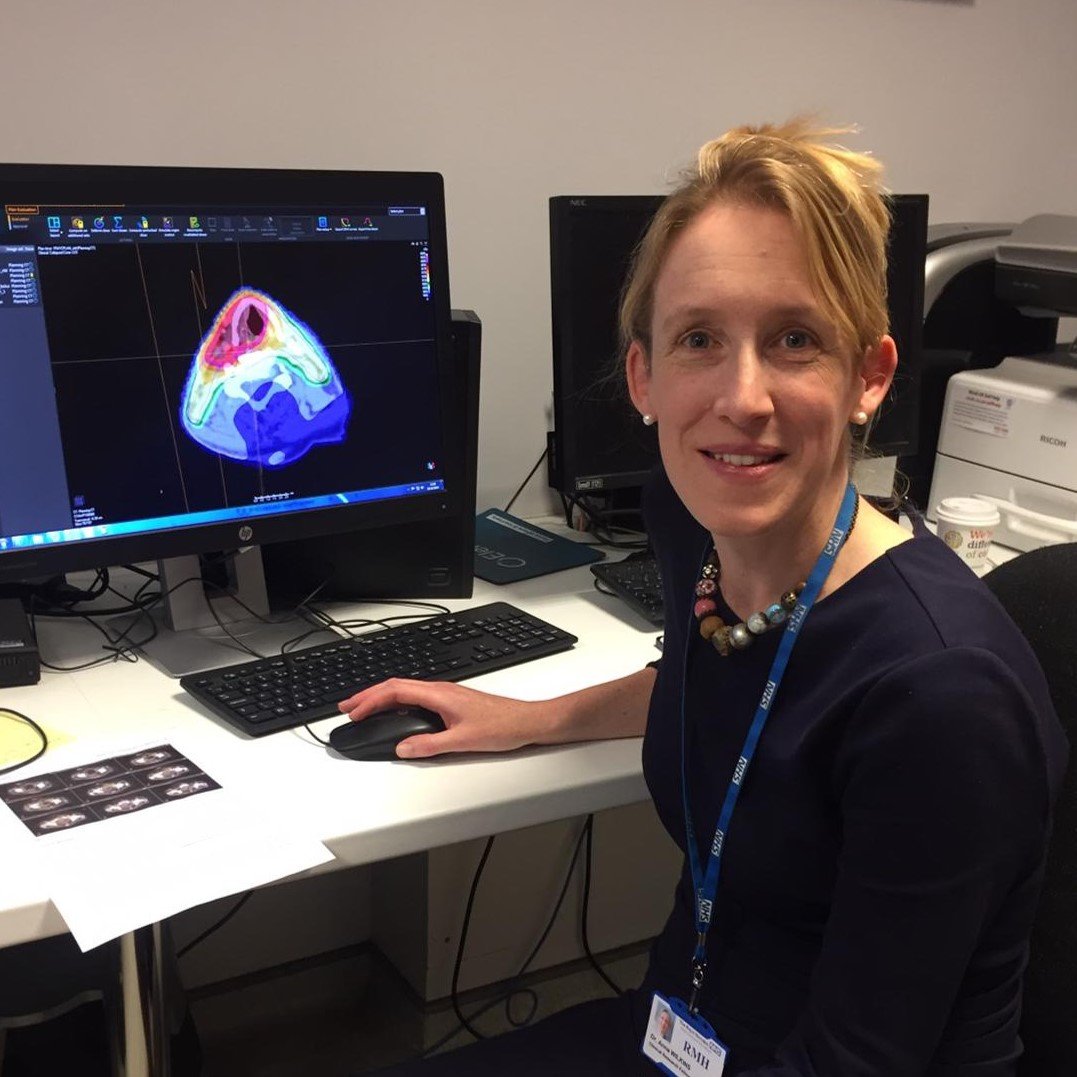 .
.
Anna Wilkins is a Clinician Scientist at the ICR and an Honorary Consultant in Clinical Oncology at the Royal Marsden, working in the Prostate and Bladder Research Group.
Professor Kevin Harrington's group have written 724 publications
Most recent new publication 12/2025
See all their publications .
.
